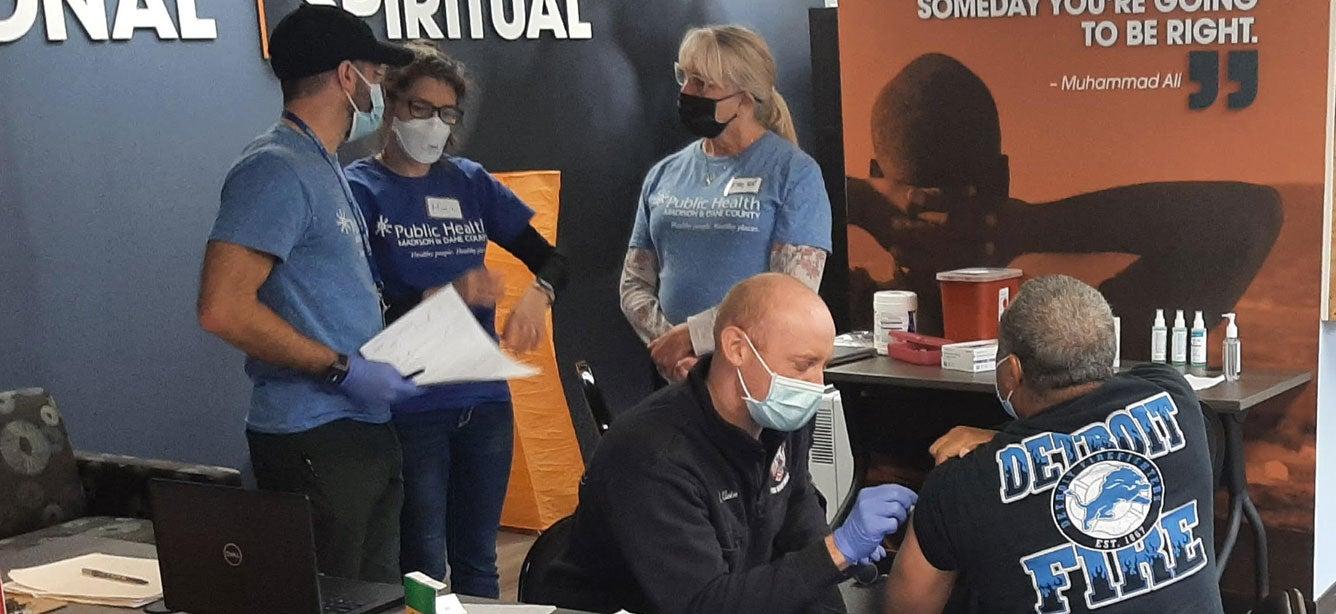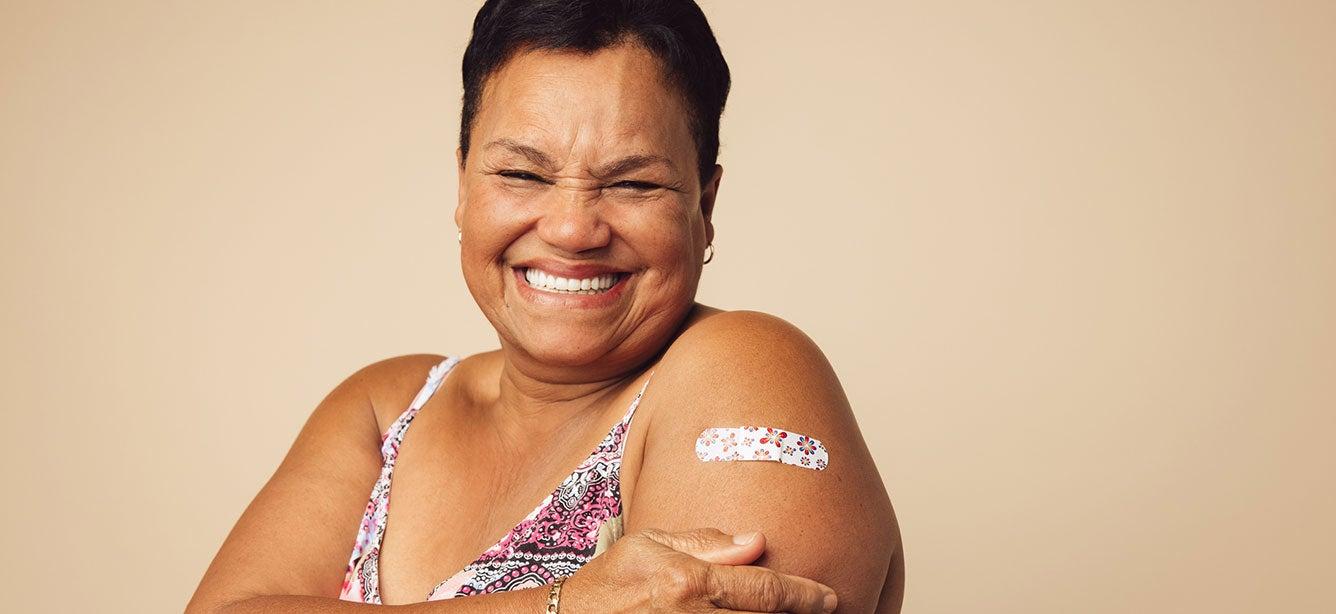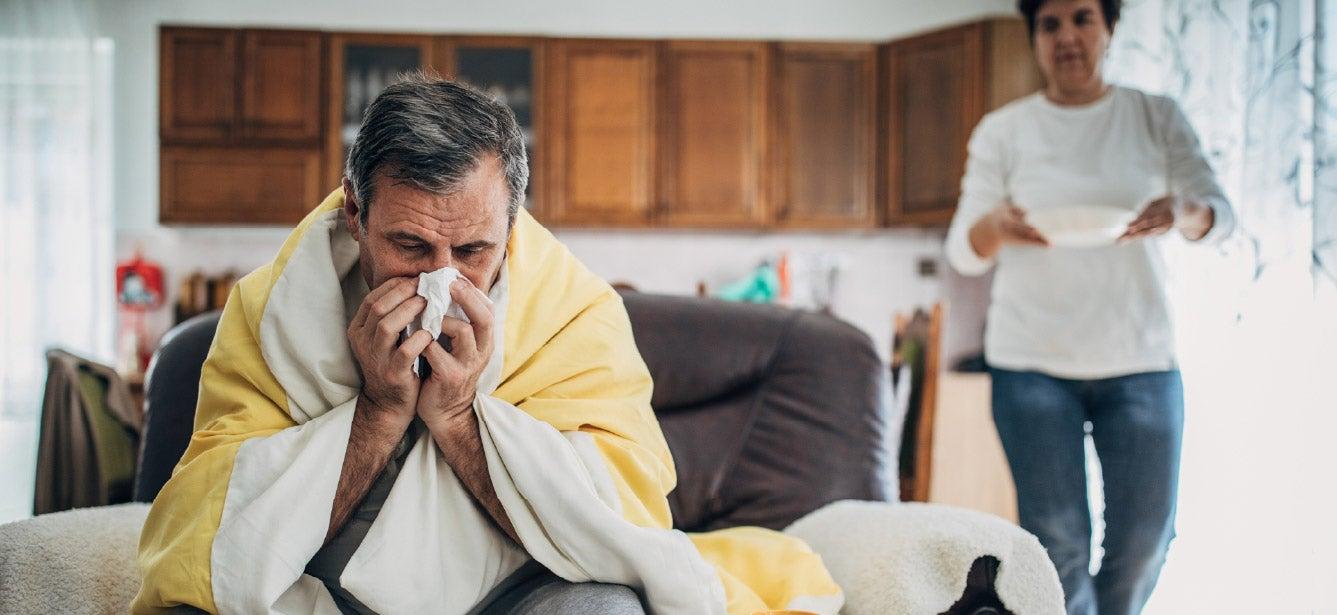Wellness at the Barbershop: How One Nonprofit Is Meeting Black Older Adults Where They Are
5 min read

One recent afternoon, the Perry Family Free Clinic in Madison, Wisconsin—run by the Rebalanced-Life Wellness Association (RLWA)—was bustling. A grandson looked on dutifully as his grandfather received his COVID-19 vaccination. Another man tenderly held his 60-year-old brother’s hand as he, too, was vaccinated against the virus.
Meanwhile, just a few feet away, customers were getting their hair cut, shaped, and styled as they chatted away with a barber.
If you’re wondering, the Perry Family Free Clinic is no ordinary health center. It’s co-located with Madison’s largest Black barbershop, JP Hair Design, providing an innovative new model for reducing health disparities among Black men in the community. In addition to vaccine clinics, the Perry Family Free Clinic offers blood pressure and obesity screening, diabetes and cholesterol testing, mental health checks, and more. And visits are always free of charge for patients.
The clinic also holds regular COVID-19 vaccine clinics. In fact, the RLWA organization is one of 180 grantees under NCOA’s COVID-19 and Influenza Vaccine Uptake Initiative—a nationwide campaign funded by the U.S. Administration for Community Living (ACL) to ensure older adults and people with disabilities get the latest COVID and flu shots.
An unusual pairing (that just made sense): A barbershop and a health clinic
How did the idea for a health clinic in a barbershop come about? In a recent PBS Wisconsin interview, RLWA founder Aaron Perry recalled how illness was a common topic of conversation at the barbershop he frequented: “I would hear guys just talking about all types of health problems,” he said.
It’s no surprise, since Black men are significantly less likely to access health care than white men or women (of any group). And this negatively impacts their health and longevity. A 2017 report from the RLWA and Public Health Madison Dane County cited heart disease, cancer, stroke, and diabetes as the leading causes of death in Black men. It also showed Black men in Wisconsin die an average of seven years younger than their white counterparts.
Perry, who has diabetes, is well familiar with the barriers Black men face in accessing preventive care, from lack of awareness about resources to a general distrust of the medical community. After all, he established RLWA in 2007 with the sole purpose of helping Black men in Wisconsin improve their health—just two years after becoming the world's first Black person with diabetes to complete the Ironman Triathlon.
One day, an idea struck him: why not combine no-cost health services with the one place Black men feel connected, supported, and understood? He pitched his vision of a barbershop-men’s health clinic to shop owner Jeff Patterson, who was immediately on board.
Perry opened the RLWA Men’s Health & Education Center in JP Hair Design in 2016, with the Perry Family Free Clinic next door. Since then, two additional education centers have sprouted up in two more barbershops in the greater Madison region (one of which also serves women). Perry hopes to continue building on this success by opening centers in other states.

We’ve stumbled onto something that’s different—and that’s working—and if we can replicate this model in more black barbershops and community organizations in Dane County, we can reach thousands of black men and boys,” Perry told the University of Wisconsin School of Medicine and Public Health.
Promoting lifesaving vaccines in the Black community
According to the National Foundation for Infectious Diseases, Black communities are disproportionately affected by serious illness related to COVID-19 and influenza. Historically, they also have lower flu vaccination rates.
Through its vaccination campaigns, the RLWA is helping to change that. The stakes are too high to just sit by and do nothing. “If we don't get the vaccine, we allow COVID-19 to still ravage through our community,” Jeff Patterson said in a PSA promoting the vaccine clinics.
Susan Stiles, Senior Director for Healthy Aging Innovations at NCOA, says that because RLWA and other grantees serve diverse racial and ethnic populations in both metropolitan and rural areas, they play a critical role in eliminating vaccination barriers.

“It’s an honor to fund organizations that are finding novel ways to reach underserved populations and help them lead full, productive lives,” Stiles said.
“These local organizations are trusted messengers in their communities," said NCOA Chief Customer Officer Josh Hodges. "We’re proud to support their efforts to keep older adults and people with disabilities safe and healthy with the latest lifesaving vaccines.”
How older adults can protect themselves from COVID and the flu
While COVID-19 is no longer an official public health emergency, it should still be considered a public health priority. This is especially true for older Americans, who continue to be vulnerable to complications even as COVID hospitalization and death rates drop. The risk is even greater for those with underlying conditions like heart disease, cancer, and sickle cell disease.
Influenza also remains a threat to older adults, particularly since mask wearing and physical distancing behaviors have lessened. Compared to younger populations, people age 65 and older are at a much higher risk of developing serious complications from the flu.
If you’re 65 or older, how can you ensure you’re well-protected against COVID-19 and flu risks all year round?
- Make sure you’re up to date on your COVID vaccinations right now. This means a primary series plus the bivalent booster approved by the U.S. Food & Drug Administration (FDA) in April 2023.
- Get your seasonal flu shot every year. The Centers for Disease Control and Prevention (CDC) recommends receiving a seasonal flu vaccine each year. While it's ideal to get your flu shot by the end of October, you can receive it later as well. There are specific, high-dose flu vaccines designed for older adults that are shown to trigger a better immune response than the traditional version. Be sure to ask for this version when getting your shot—but if the high-dose version is not available, opt for the traditional dose instead.
To find COVID and flu vaccines near you, search by ZIP code at Vaccines.gov. You can also check our list of grantees for local organizations that can help you get your vaccines.




